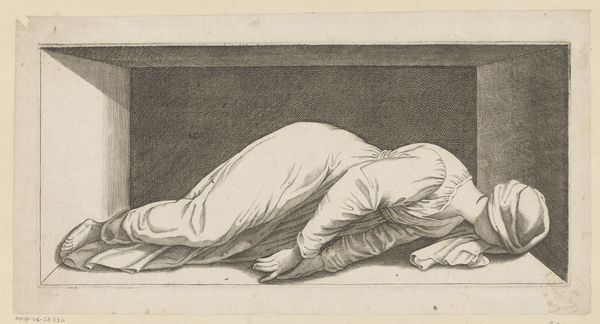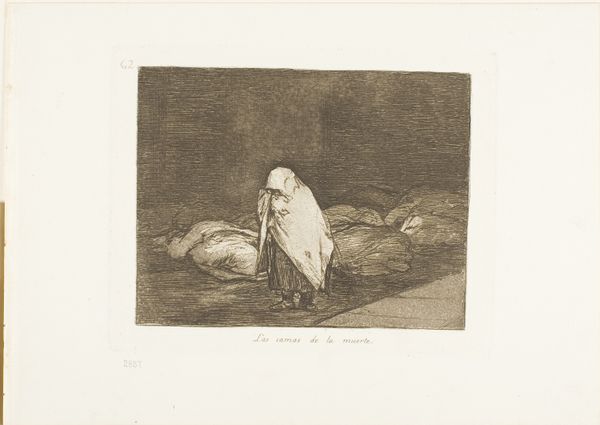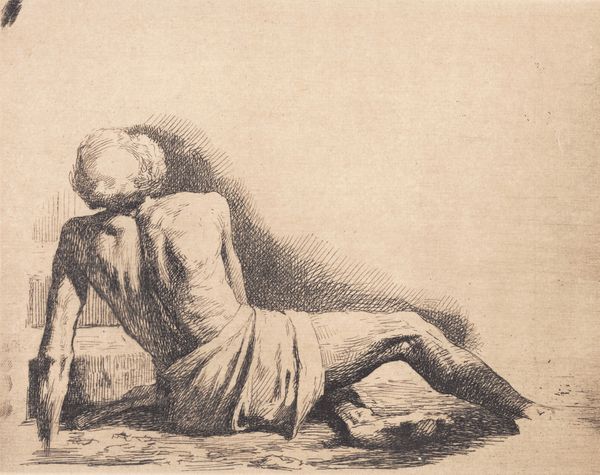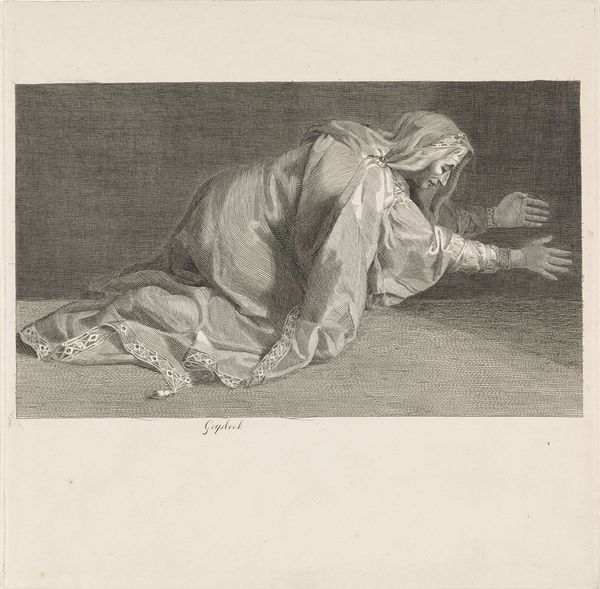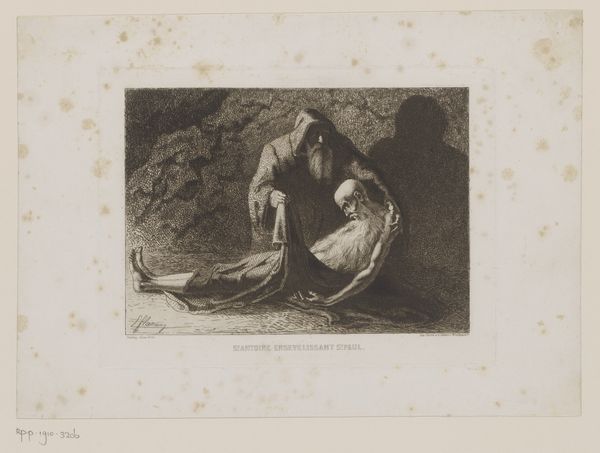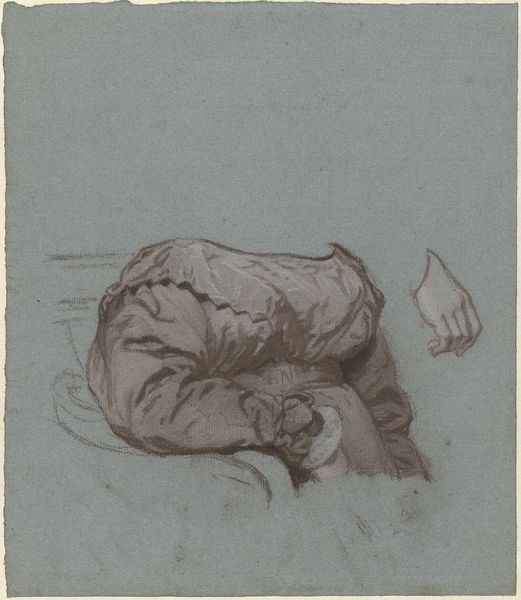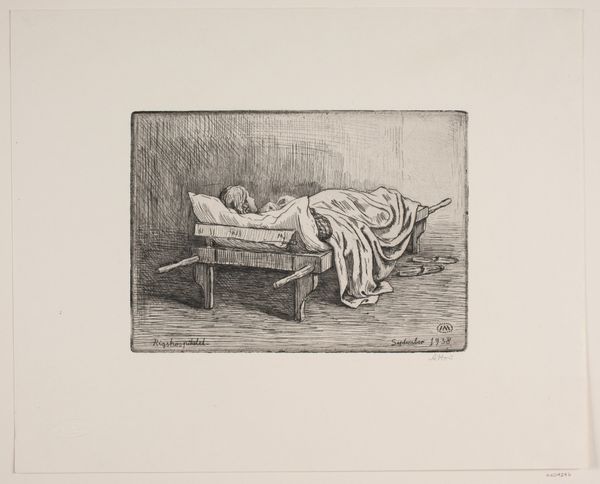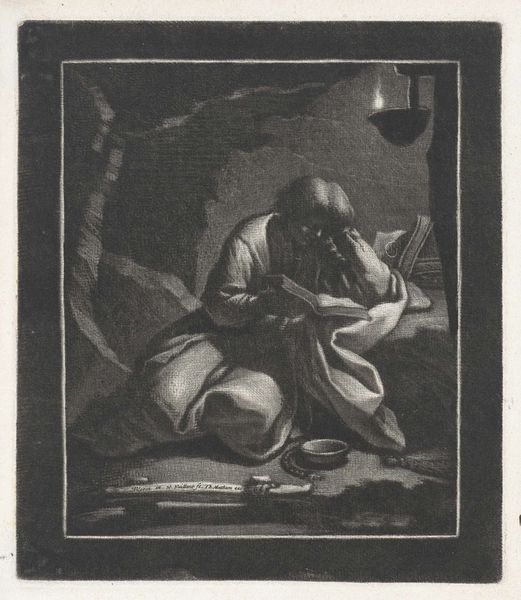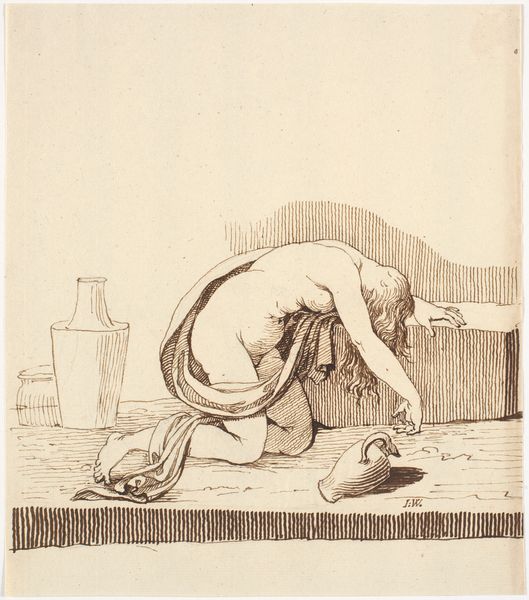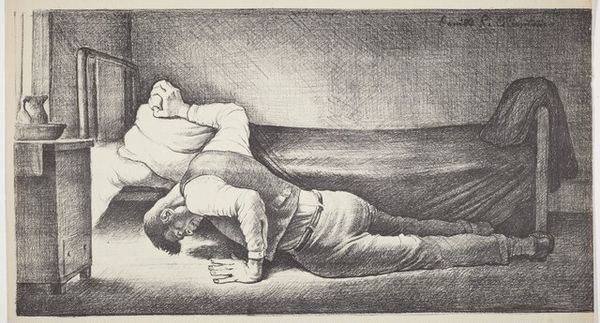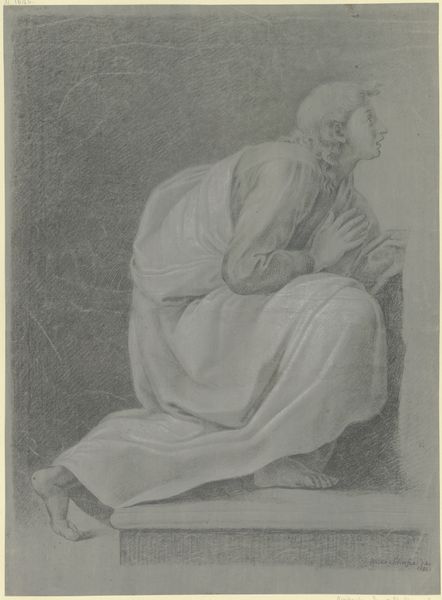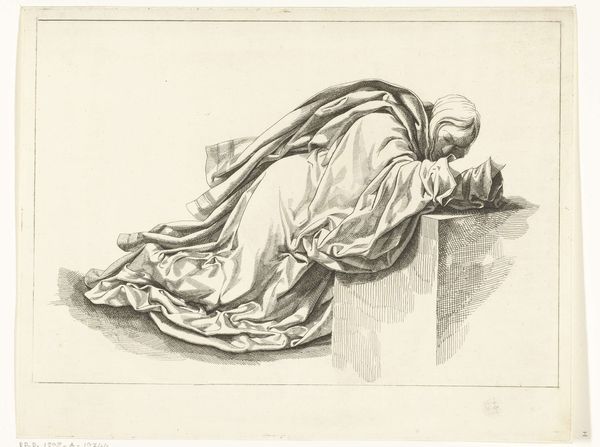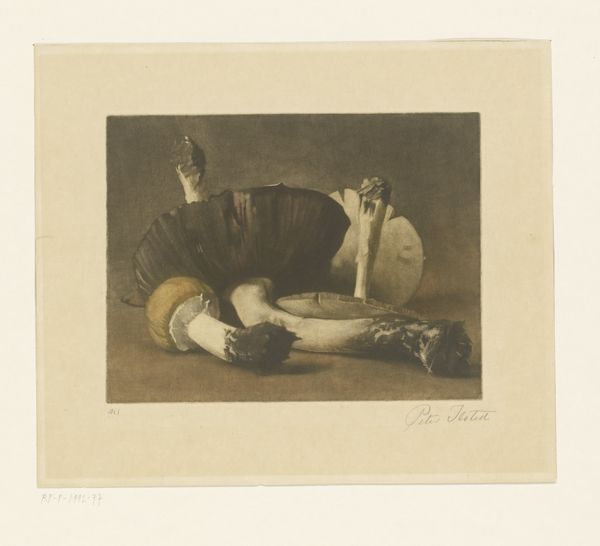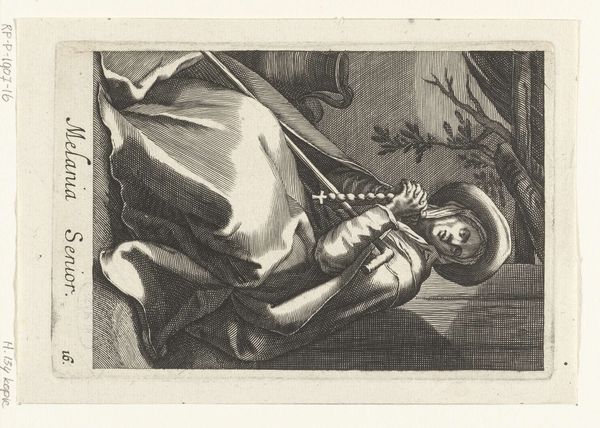
Dimensions: height 237 mm, width 306 mm
Copyright: Rijks Museum: Open Domain
Johann Wilhelm Kaiser created this print, "Study of a Bent-Over Man," using etching, a process where lines are incised into a metal plate with acid, which then holds ink to make an image. The fine lines capture the texture of skin and fabric, giving the figure a sculptural, almost tangible presence. Think about the labor involved in this print. Each line represents a deliberate, physical act by the artist, a kind of focused performance. Kaiser’s mark-making gives the image an intensity that a quick sketch could not achieve. We see this labor especially in the contrast between the smooth, shaded areas and the concentrated hatching that defines the figure's form. This contrasts with industrial modes of production. Instead, Kaiser gives us the human body through a laborious, handcrafted process, elevating it to the realm of fine art. By emphasizing the hand’s role, Kaiser prompts us to consider the value of craft in representing human experience.
Comments
No comments
Be the first to comment and join the conversation on the ultimate creative platform.
